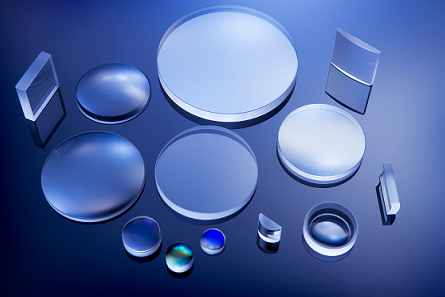With the continuous integration of optics and electronic information science and new material science, the application of optical glass as the basic material of optoelectronics in the three major fields of optical transmission, optical storage, and the optoelectronic display is advancing by leaps and bounds. One of the basic conditions.
Classification of optical glass
- Colorless optical glass
- Colored optical glass
- Special optical glass
Anti-radiation optical glass
Radiation-resistant optical glass
UV and IR Optical Glass
Optical quartz glass
This article focuses on colorless optical glass

Colorless optical glass has the characteristics of high transparency and non-selective absorption. According to the Abbe number, it can be divided into crown glass and flint glass. Generally, the crown belongs to an alkali silicate system, and most flint glass belongs to the lead silicate system.
According to the refractive index and dispersion coefficient, it can also be divided into 17 subcategories and more than 200 grades. Each grade must have specified optical constants, optical uniformity, transparency, and chemical stability.
Classification of colorless optical glass?
1. Colorless optical glass is usually divided into two categories, namely crown glass (indicated by K) and flint glass (indicated by F).
2. According to the position of the dispersion coefficient νd and the refractive index nd in the (nd-νd) field diagram and the composition of the glass, colorless optical glass is divided into 17 categories:
Fluorine crown glass–FK
Light flint glass–QF
Light Crown Glass–QK
Flint glass–F
Crown glass–K
Barium flint glass–BaF
Phosphorus crown glass–PK
Heavy barium flint glass–ZBaF
Heavy phosphorous crown glass–ZPK
Barium crown glass–BaK
Heavy flint glass–ZF
Heavy crown glass–ZK
Lanthanum Flint Glass–LaF
Lanthanum Crown Glass–LaK
Heavy Lanthanum Flint Glass–ZLaF
Crown flint glass–KF
Special flint glass–TF
Grading of colorless optical glass
Glass is classified and graded according to the following work quality indicators:
a. The allowable difference between the dispersion coefficient and the refractive index and the standard value;
b. The consistency of the dispersion coefficient and reflectivity of the same batch;
c. Optical uniformity;
d. Stress birefringence;
e. Stripe degree;
f. Bubble degree;
g. Light absorption coefficient;
h. Radiation resistance (N series glass).
